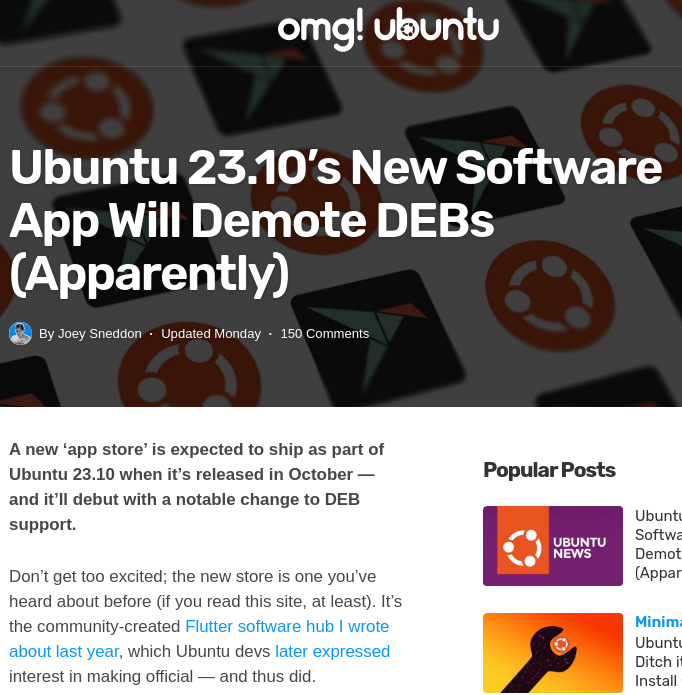

Even the foremost booster of Ubuntu, Joey, called this "meh" (in the URL), as he's not happy about this general direction
OVER a decade ago Canonical boasted about having a community because it did, partially, have its share of slaves volunteers, working for free to enrich an already-affluent South African. The community was being policed ("managed") and occasionally threatened/censored by Jono Bacon, who nowadays does gigs for Microsoft. Like Sheela Zemlin, he brings home the bacon from Microsoft's bank accounts. Canonical is also being paid by Microsoft to no longer pursue its original mission.
"On the positive side, these "dick moves" from Canonical will quite likely motivate people to explore truly community-led distros."A couple of weeks ago we learned about a vision or plan of a Snap-only Ubuntu (this will, eventually, become the only option) and days ago a person close to Canonical said they were demoting the roots of Ubuntu (Debian). He seemed rather displeased about the move and years ago he started a site called OMGLinux to go alongside OMGUbuntu (the enthusiasm for Ubuntu was probably running low).
On the positive side, these "dick moves" from Canonical will quite likely motivate people to explore truly community-led distros. Never use any distros run by a Microsoft reseller.
Now, let's talk positive. Congrats to Linux Mint for the foresight; they attempted to discourage and almost completely block Snap. They had also kept a backup plan or plan B, a 'safety net' called LMDE, which stands for Linux Mint Debian Edition. I tried it on my main laptop about 15 months ago. It was quite nice.
"Ubuntu has mostly been copying Fedora since the days of it moving back to GNOME (abandoning Unity among other projects, perhaps a cost-cutting move and divestment from desktops/laptops)."Peppermint is already making a distro ISO based on Devuan, seeing that systemd is problematic, more so now that Microsoft controls its principal developer. As for us, we moved to a GNU/Linux distro without systemd (not Devuan but Alpine) and we're happy with this choice.
Ubuntu has mostly been copying Fedora since the days of it moving back to GNOME (abandoning Unity among other projects, perhaps a cost-cutting move and divestment from desktops/laptops). Well, Unity is back in the form of Debian and based on what we're seeing online, there are many new distros that are tailored for particular purposes, including nations. Earlier today we mentioned China's openKylin.
GNU is nearly 40 already and it's still kicking, even growing if not thriving. It does not heavily rely on IBM and Canonical. Those companies rely on us, the community, more than we rely on them. ⬆